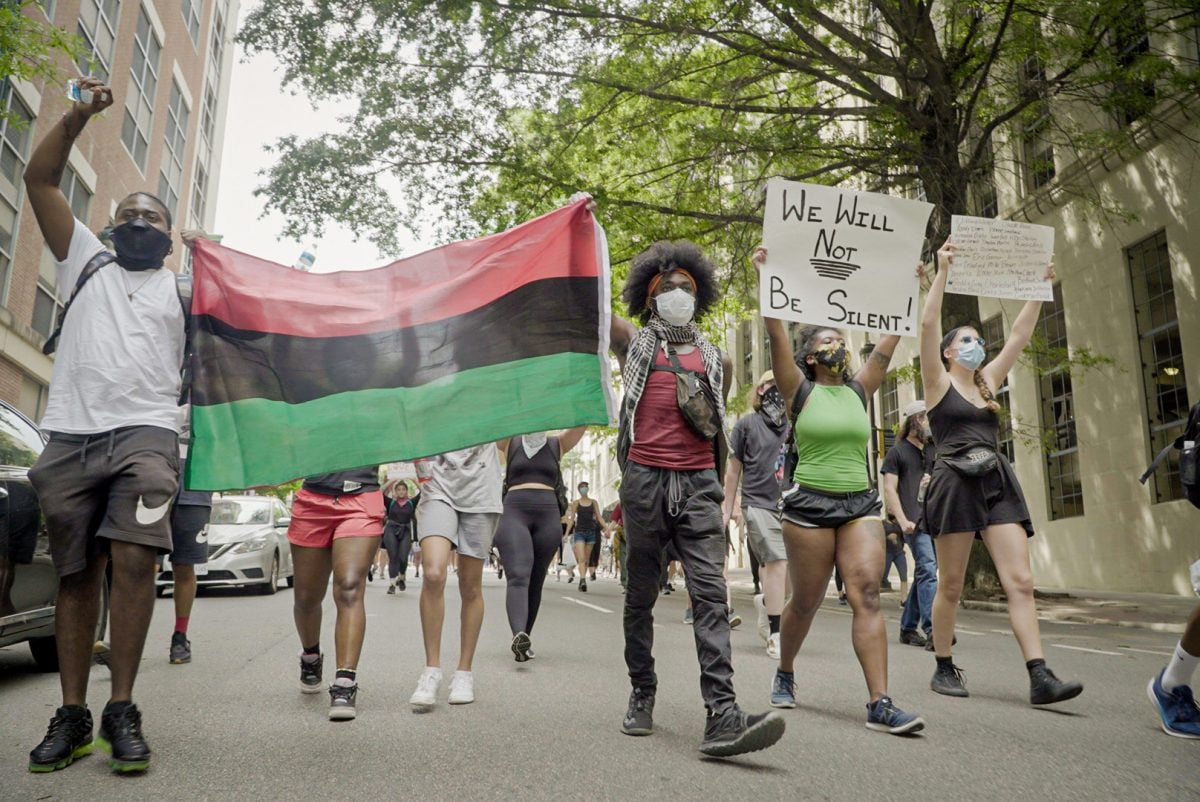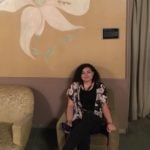“I saw the world we were fighting for: a diverse cohort of all races, sexualities, and religions celebrating together.” RVA Magazine catches up with local protesters to hear their voices during a movement sweeping the nation.
“I can’t breathe.” These three words, once uttered in a moment of desperation, now represent a new generation’s fight. In the aftermath of George Floyd’s death, protesters have sparked a movement across the nation to demand justice, denounce systemic racism, and advocate for social reform. The movement is very much alive in Richmond.

“As a young black female, I feel that this movement means change, justice, and equality,” said Jamie Hatcher, a 20 year old activist and student at Virginia State University.
Hatcher is from Caroline County, Virginia. She said she first became involved with social reform movements after the “heartbreaking death of Trayvon Martin,” a 17-year-old high school student who was killed by a white police officer in 2012.
After the death of George Floyd, Hatcher began participating in today’s Black Lives Matter movement by sharing resources on social media, creating art, and attending protests.
“[I want to see] justice for George Floyd and his hurting family,” along with full equality throughout the American justice system, she said.
Beginning in the days after George Floyd’s death, thousands of people in cities and towns across the United States came together to express their outrage with systematic police brutality. As the movement grew, protesters began to widen their message, further advocating against institutional racism and the social inequality that the black community faces in America.

Fletcher Dalton, a 20 year old student at University of Richmond, attended his first protest in Richmond on May 29. He has been present at every local protest since.
“This movement is necessary and warranted,” said Dalton. “The black community has been discriminated against and killed, over and over again…. I saw this [movement] as a chance to stand up for what is right.”
While the movement takes place on the streets, protesters advocate for change in government.
“This goes past the criminal system,” said Dalton. “Minorities have been oppressed socio-economically in housing and in employment. We need to create a just society… That begins with changing the criminal justice system.”
Photographer and videographer Domico Phillips, 27, decided to use his professional and creative skills to aid the movement. Phillips said that Floyd’s death felt very personal for him, and he has participated in the movement every day since protests began in Richmond.

For Phillips, this movement represents the desire for a necessary reform.
“Being a black man in this world,” said Phillips, “I know the same thing [that happened to Floyd] can happen to me.”
“This movement is about the liberation of black communities from oppression,” said Julia Funk, a 20 year old protester from Northwest Chicago and rising junior at the University of Richmond.
“It is about checking and dismantling a police force that systematically murders and imprisons black Americans,” she said. “It is about listening to black voices, and educating ourselves so that we can change these systems of oppression.”
Of his experiences at Richmond protests, Dalton expressed anger and disappointment with the violent treatment of demonstrators by the local police force.
“The police were throwing tear gas, fireworks, firecrackers, and pepper spraying the protesters,” he said. “My boyfriend, his friend, and I were hit with tear gas multiple times that [first] night,” said Dalton. “There were moments when I could not breathe because the pepper spray was so strong. It literally makes your entire chest and face tense with pain.”

Despite being tear gassed by the police, Dalton described the protests as “freeing and liberating.”
“Everyone was dancing in the streets and chanting for the Black Lives Matter movement,” he said. “It was scary and exciting. I saw the world we were fighting for: a diverse cohort of all races, sexualities, and religions celebrating together.”
Protesters and activists have had a few victories to claim thus far. On May 29, Derek Chauvin, the Minneapolis police officer who killed Floyd, was arrested and charged with third-degree murder and second-degree manslaughter, later upgraded to second-degree murder. The remaining three ex-officers involved in the incident have also been arrested, although they face lesser charges of aiding and abetting murder. In the community, various organizations, businesses, and state and local governments have taken symbolic actions in support of the movement. NASCAR, for one example, has banned the use of the Confederate flag from events.
A Richmond victory came with Governor Ralph Northam’s June 3 announcement that the state will remove Confederate statues in Richmond, including the Robert E. Lee statue, which has become a gathering site for local protest demonstrations.
Protesters in Richmond have taken it upon themselves to remove statues of Jefferson Davis, Christopher Columbus, and Williams Carter Wickham, a 19th century lawyer, slave owner, and Richmond native.

Dalton stated that while he is supportive of the removal of the Confederate statues, he does not believe the local and state governments are doing enough to advance social justice. Hatcher also expressed her disappointment with the local and state government.
“While African-American anger is finally being voiced,” she said, “it is not really being heard or understood.”
This sentiment is also mirrored by Funk. She expressed that she would urge white people to take this time to listen to black voices, and reflect upon what is being said.
“Now is the time to educate yourself, and resources are everywhere,” said Funk. “[The white community] has to be able to listen, learn, and change, or we will continue to reinforce systems of oppression.”
Floyd’s homicide has spurred activists to gather, speak out, and march. Regardless of their opposition, communities are once again coming together against the institutional practices that allow racism, ignorance, and police brutality to run rampant in the United States.
Top Photo by Domico Phillips



